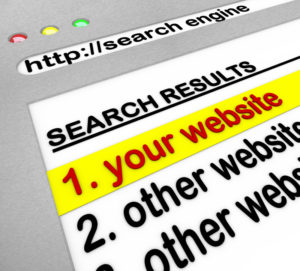SEO vs Content
 SEO and content serve different purposes. Well executed SEO can lead visitors to your site, but only satisfying content will keep them there. Good SEO habits – like writing accurate and brief Meta descriptions and deploying your keywords with care – will put you technically on target with Google’s rules, and give you the best chance of being found. But what happens when the searcher reaches your page?
SEO and content serve different purposes. Well executed SEO can lead visitors to your site, but only satisfying content will keep them there. Good SEO habits – like writing accurate and brief Meta descriptions and deploying your keywords with care – will put you technically on target with Google’s rules, and give you the best chance of being found. But what happens when the searcher reaches your page?
Should I Stay or Should I Go?
One metric that Google uses to judge the worthiness of your web page is the “long click”. It’s an indication that your content fits the needs of the visitor. A “short click” however, indicates that your content was so unsatisfying that the visitor immediately bounced back to the search page to try the next result. Want to avoid the short click? Put yourself in the mind of the searcher.
What was I looking for anyway?
Research identifies three broad kinds of web searches:
• Transactional: I want to do something: . . open a gmail account, . . . sign up for a free trial, . . . . hear ‘Stairway to Heaven”
• Informational: I need to know something . . .the distance from Earth to the moon, . . .total rainfall in Guatemala, . . . names of Bach’s children, . . . best plumber in the area.
• Navigational: I want to go to a specific pre-determined URL. Take me to . . . Netflix, HBO, ESPN, Chase Bank etc. These searches may not involve a search engine at all . . .
The success of your website hinges on answering every kind of query with satisfying content. Want readers to come to your page and stay there? Set appropriate expectations with your SEO, then deliver the goods on your page.
